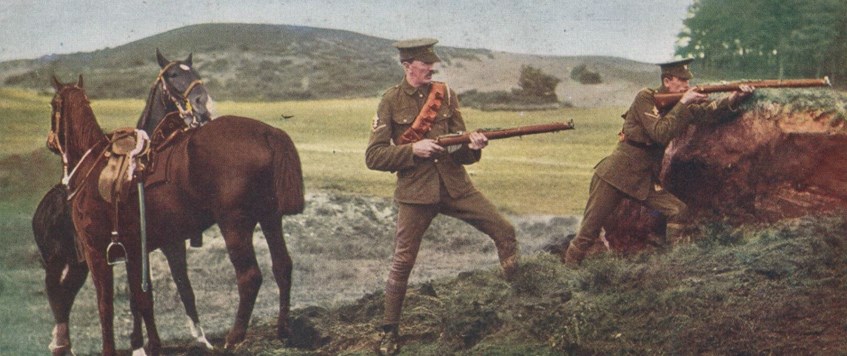
In May Dr Timothy Bowman will give a talk on:
Irish Recruitment in the Great War
Overall, about 210,000 Irish men and a few thousand Irish women served in the British forces during the Great War. The traditional view of Irish recruitment, established immediately after the Great War, was that only Ulster Protestants had responded to Britain's call to arms. Revisionist work in the 1980s and 1990s, notably by Patrick Callan and David Fitzpatrick, tended to downplay religious and political motivations in men's decisions to enlist. In this talk, Timothy Bowman will explain that the picture of Irish recruitment between 1914 and 1918 is a nuanced one. While Protestants in Belfast were probably the group most likely to enlist, the numbers of Catholics enlisting in West Belfast was disproportionately high, as was Catholic recruitment in Cork and Dublin. In rural Ireland as a whole, recruitment rates remained low and mirrored pre-war recruitment patterns. Irish rates did follow the pattern of those in Great Britain, at least until conscription was introduced in 1916, but only because industrial Belfast followed a British pattern. While the Easter Rising of 1916 is sometimes seen as the end of British recruiting activities in Ireland a properly organised propaganda campaign in 1918 achieved surprising success by offering men the option to gain technical skills by joining the RAF.
Dr. Timothy Bowman is Reader in Military History at the University of Kent. He has recently published, with William Butler and Michael Wheatley, 'The Disparity of Sacrifice: Irish recruitment to the British armed forces, 1914-18' (Liverpool University Press, 2020). He was the lead academic advisor to BBC Radio Ulster for the series of programmes which they produced for the 'WW1 at home' series during the centenary of the First World War, see:
https://www.bbc.co.uk/programmes/p01p33l4





